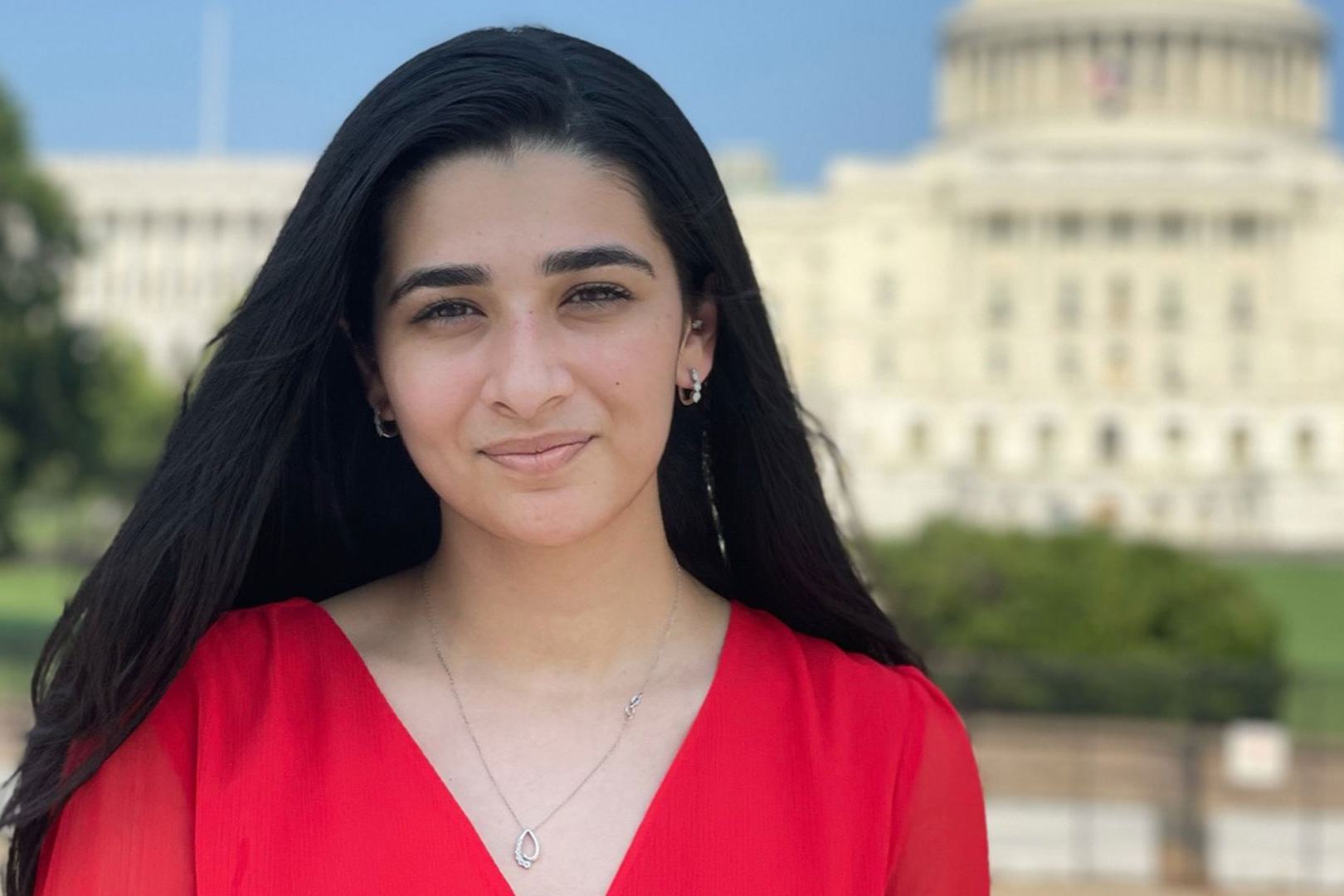Even before arriving on campus in the fall of 2019, Eshika Kaul ’23 knew she wanted to work with the Wellesley Centers for Women.
“I actually wrote one part of my Wellesley 100 application essay on the Wellesley Centers for Women and the amazing opportunities they provide students,” Kaul said. “The combination of research and social action was really fascinating to me. I knew I wanted to learn how to use empirical research to make a difference in the world.”
Last July, Kaul, an economics and peace and justice studies double major, turned her ambition into reality through WCW’s social science research internship program. Over the course of the year-long internship, Kaul studied whether household income had an effect on the manifestation of childhood traumas in Wellesley students.
Kaul’s interest in the subject was sparked by an alternative break trip to a domestic violence shelter in Maine during the 2020 Wintersession, offered by Wellesley’s Civic Engagement program, where the group of Wellesley students provided support to the shelter’s residents. “Speaking to some of the children at the shelter, I was shocked by the burdens and challenges they had already faced,” Kaul said. “I knew there must be some long-term effects of the trauma they were experiencing and wanted to study this further, with the ultimate goal of finding better ways for children to cope with these experiences.”
Upon returning to Wellesley, Kaul was determined to continue her work. She felt that a WCW research internship would offer her the perfect opportunity to learn more about the effects of domestic violence and other related trauma on children.
After proposing her project ideas and being selected for the program, Kaul began reading existing research. “I learned that my initial theory was even stronger than I anticipated,” Kaul said. A primary study she drew upon for her work, the CDC-Kaiser Permanente Adverse Childhood Experiences Study, one of the largest investigations of childhood abuse and later-life health and well-being, showed a strong relationship between level of exposure to adverse childhood experiences (ACEs), such as witnessing domestic violence or abuse, and several leading causes of death in adults, including cancer, chronic lung disease, and liver disease. There are 10 types of childhood trauma measured in the CDC-Kaiser Permanente Adverse Childhood Experiences Study. Each type of trauma counts as one and a person’s ACE score is the sum of traumas measured by the study. One factor connecting higher ACE scores and long-term health problems is an increase in short-term mental and behavioral effects, such as risky behaviors, like smoking, alcohol, drug and food abuse, as well as social and emotional impairment.
Under the guidance of her internship mentor, Wendy Wagner Robeson, senior research scientist in the Work, Families, and Children Research Group at the WCW, Kaul developed a survey similar to ones she had studied.
“I hypothesized that if you grew up with a higher household income, you had more access to mental health resources, which could result in relatively lower social/emotional impairment, but that you would also have greater access to drugs and alcohol due to increased funds, which could result in relatively higher levels of risky behaviors” Kaul said. Ultimately, about 100 Wellesley students responded to her survey.
The results surprised her. “One of the most interesting findings was the lack of connection between risky behaviors and ACE scores, which didn’t follow the results of the CDC-Kaiser Permanente study,” Kaul said. She suspected “this data might be explained by hidden factors selected for in the Wellesley population.”
Kaul acknowledges that the data she collected is not significant enough to reject or support her hypothesis with confidence, but she believes that, holding ACE scores constant, the general trends seem to reject that higher-income Wellesley students will have higher risky behavior scores and support that they will have higher self-esteem scores.
Kaul found it most interesting that her research demonstrated the intersectionality of issues Wellesley students face. “Low-income students not only face financial barriers, but the data suggests that if they have higher ACE scores, they are more likely to have a lower self-esteem than their high-income peers with similar ACE scores,” Kaul said. “This suggests that specific resources may need to be dedicated to help not just with childhood trauma or financial burdens, but with the implications of dealing with both of these burdens as well.”
With her internship complete, Kaul is still considering the best way to use the information she gathered to help people affected by adverse childhood experiences. “Before the pandemic, I was working with Civic Engagement and local domestic violence organizations to create a partnership where Wellesley students would volunteer weekly and provide support to hopefully reduce the impact of trauma on children,” Kaul said. “While my internship has ended, I hope to use the findings that came from it to try to reevaluate and hopefully implement some kind of volunteering program. Essentially, now that my research is over, I’m focused on following through on the social action aspect of WCW’s approach.”
